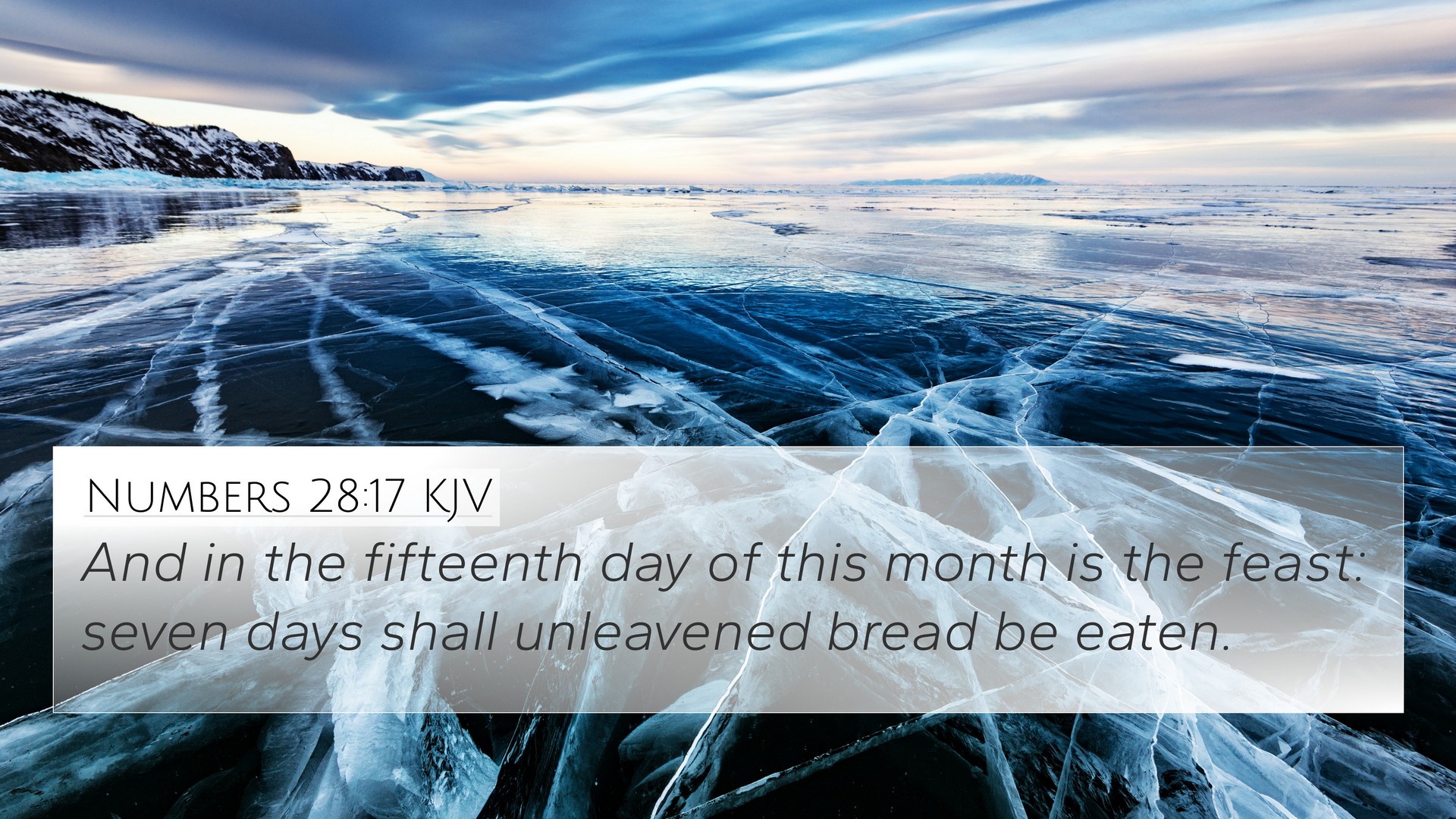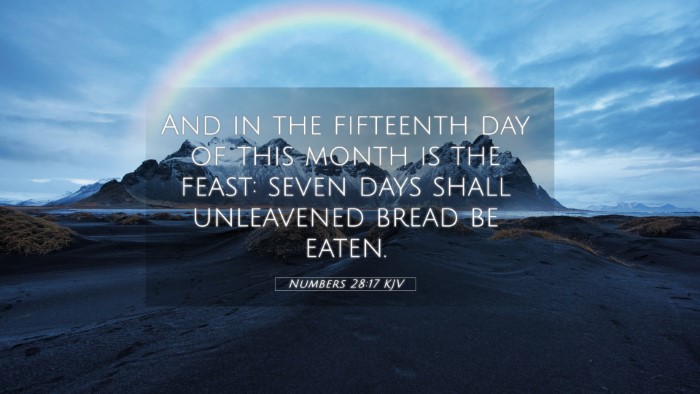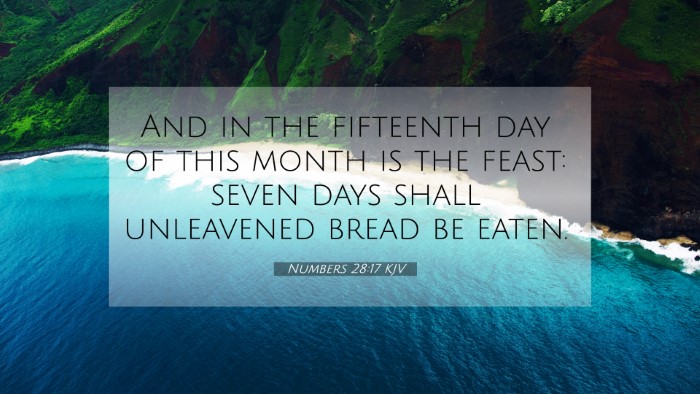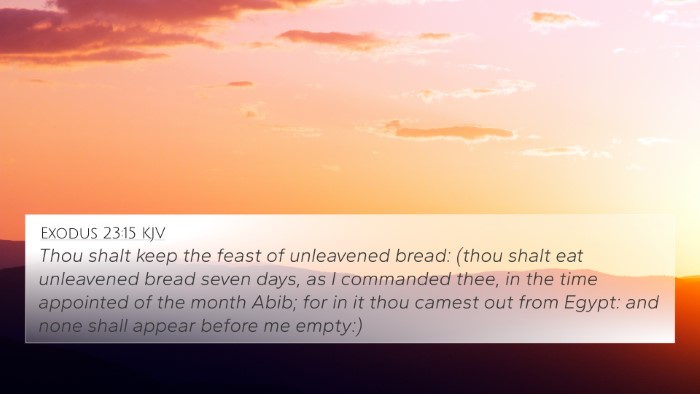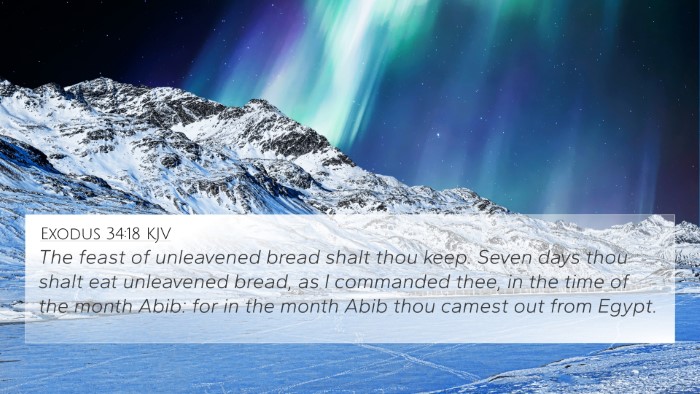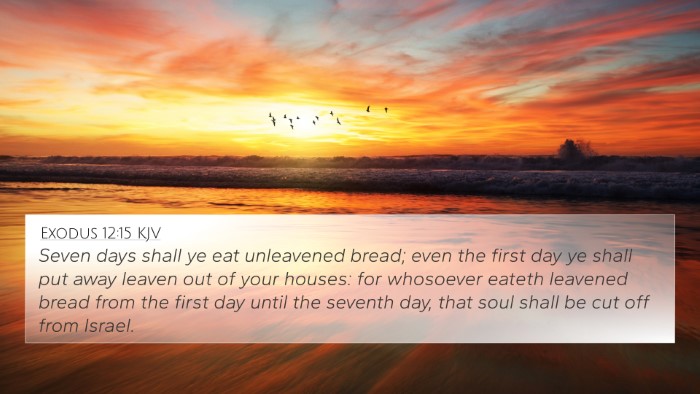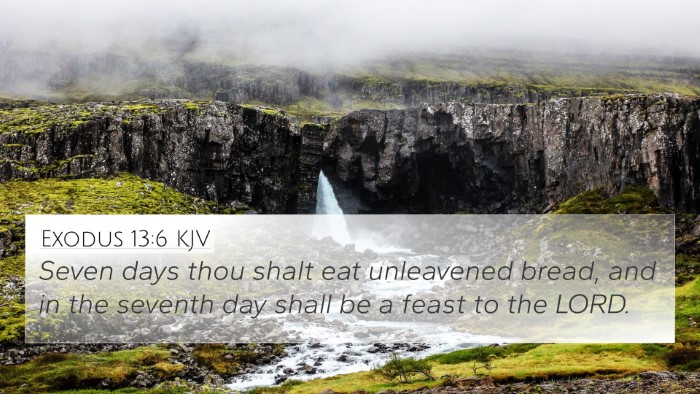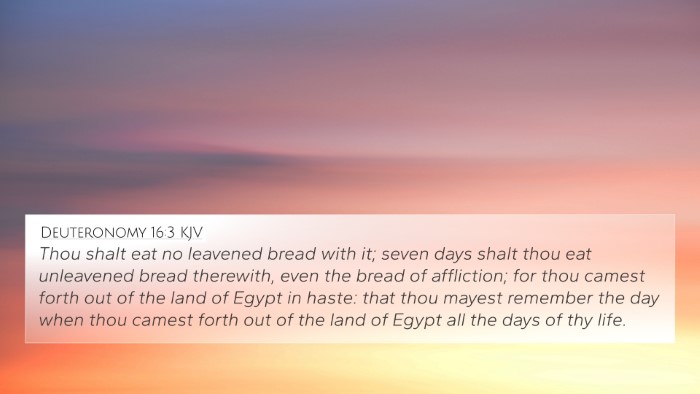Bible Verse Meaning: Numbers 28:17
Numbers 28:17 states, "And in the fifteenth day of this month is the feast: seven days shall unleavened bread be eaten." This verse marks the institution of the Feast of Unleavened Bread, a significant celebration for the Israelites as it commemorated their deliverance from Egypt.
Significance of the Feast
This feast is essential for understanding the broader context of God's covenant with Israel. It emphasizes themes of remembrance, purity, and divine deliverance. Key insights drawn from various public domain commentaries elucidate the depth of this verse.
Matthew Henry's Commentary
Henry emphasizes the spiritual significance of purging out leaven, which is symbolic of sin. In this context, the unleavened bread represents sincerity and truth (1 Corinthians 5:8). Henry draws parallels to the New Testament, where Jesus refers to the need for believers to avoid the leaven of the Pharisees (Matthew 16:6).
Albert Barnes' Notes
Barnes highlights that the feast of unleavened bread not only commemorates Israel's exodus but also establishes a rhythm of worship centered around God's timing. He notes that the observance of this feast was accompanied by specific offerings which were to be made during this seven-day period. Barnes draws connections to the sacrifices outlined in Leviticus 23:6, noting the importance of bringing a sin offering as an acknowledgment of guilt and need for atonement.
Adam Clarke's Commentary
Clarke focuses on the national aspects of the feast, pointing out that it served as a reminder to the Israelites of their identity and God’s faithfulness. He notes that this feast is linked to the agricultural cycle, with the barley harvest being significant during this time. Clarke also connects this feast to Jesus Christ, who is considered the true bread of life and who fulfilled the role of the Passover lamb (John 6:35).
Thematic Connections
Through an examination of Numbers 28:17 and its broader implications, several thematic Bible verse connections emerge:
- Exodus 12:17 - Establishing the Feast of Unleavened Bread as a lasting ordinance related to the Exodus.
- 1 Corinthians 5:7-8 - Paul’s exhortation to remove the leaven (sin) and celebrate with unleavened bread in sincerity.
- Leviticus 23:6 - Details on the offerings associated with the feast, reinforcing the act of worship during this period.
- Matthew 26:17 - Jesus’ observance of the Passover, reflecting its significance within the New Covenant.
- Mark 14:12 - A similar look at the preparations for the Passover feast during Jesus' final days.
- Luke 22:1-7 - The connection of the Passover with Christ’s sacrificial death, presenting a theme of redemption.
- John 1:29 - The identification of Jesus as the Lamb of God, paralleling the Passover lamb tradition.
- Hebrews 11:28 - Mention of the faith of Moses as he established this feast in anticipation of Christ.
- 1 Peter 1:18-19 - The reference to the "precious blood of Christ" as it relates to themes of redemption from bondage.
- Colossians 2:16-17 - The shadow of the Old Testament festivals pointing towards Christ and authentic worship.
Inter-Biblical Dialogue
Understanding Numbers 28:17 not only involves examining its immediate meaning but also involves engaging in scriptural cross-referencing that connects it to themes expressed in both the Old and New Testament. Identifying these links helps in grasping its relevance for believers today. Tools for Bible cross-referencing, such as bible concordances, are invaluable in facilitating this exploration.
Resources for Cross-Referencing
To deepen your study of this verse and others like it, consider utilizing the following:
- Bible Concordance - Navigate cross-references and find thematic connections.
- Bible Cross-Reference Guide - A systematic approach to connecting scriptures.
- Catechetical Resources - Explore structured Bible cross-reference studies.
- Commentaries and Study Guides - In-depth analysis of parallels between verses.
- Online Bible Studies - Engage with communities discussing Biblical connections.
- Cross-Referencing Apps - Utilize technology for dynamic research on Biblical texts.
Conclusion
Numbers 28:17 encapsulates vital elements of Israel's history and God's redemptive promise. Through thematic connections and inter-Biblical dialogues, one can uncover layers of meaning that address both ancient and contemporary faith experiences. As you explore these connections, may you gain a richer understanding of God's Word and its applications for living a life of faith.
